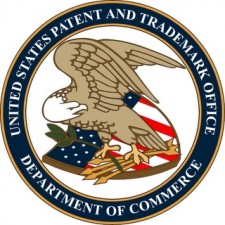Pilot program will allow consideration of an IDS after payment of the issue fee without a RCE
Washington – The United States Patent and Trademark Office (USPTO) today announced the start of the Quick Path Information Disclosure Statement (QPIDS) pilot program as part of its on-going efforts towards compact prosecution and pendency reduction. The program reduces the number of Requests for Continued Examination (RCEs) filed for consideration of an IDS after the issue fee is paid.
“The one point on which all voices of the IP community agree is that the most important thing USPTO can do to help is to get their new inventions to the marketplace faster and more efficiently, in turn enabling them to create new jobs and opportunity,” said Under Secretary of Commerce for Intellectual Property and USPTO Director David Kappos. “The Quick Path IDS pilot is another example of USPTO’s commitment to eliminating delays and increasing efficiency for our stakeholders.”
In the QPIDS pilot, IDS submissions will be considered by the examiner before determining whether prosecution should be reopened. Prosecution will only be reopened where the examiner determines that reopening prosecution is necessary to address an item of information in the IDS. When the items of information in the IDS do not require prosecution to be reopened, the application will return to issue, thereby eliminating the delays and costs associated with RCE practice.
In order to be eligible, an application must be an allowed utility or reissue application for which the issue fee has been paid and the patent has not yet issued. A QPIDS submission must be made via the USPTO’s online filing system, EFS-Web. The pilot will run from May 16, 2012 to September 30, 2012. To learn more about the QPIDS pilot program, please refer to the Federal Register Notice located here.

![[IPWatchdog Logo]](https://ipwatchdog.com/wp-content/themes/IPWatchdog%20-%202023/assets/images/temp/logo-small@2x.png)

![[Advertisement]](https://ipwatchdog.com/wp-content/uploads/2024/04/Patent-Litigation-Masters-2024-sidebar-early-bird-ends-Apr-21-last-chance-700x500-1.jpg)

![[Advertisement]](https://ipwatchdog.com/wp-content/uploads/2021/12/WEBINAR-336-x-280-px.png)
![[Advertisement]](https://ipwatchdog.com/wp-content/uploads/2021/12/2021-Patent-Practice-on-Demand-recorded-Feb-2021-336-x-280.jpg)
![[Advertisement]](https://ipwatchdog.com/wp-content/uploads/2021/12/Ad-4-The-Invent-Patent-System™.png)







Join the Discussion
4 comments so far.
Mark Nowotarski
May 14, 2012 08:32 amSpike
A couple of points (in addition to the ones made by Anon):
1. Yes, it is puzzling that IDS’s still exist now that we have Google.
2. No, it’s not weird and unrealistic to expect applicants to submit art that may render a claim unallowable. It’s done all the time. In my own experience, when I worked in R&D, it was my patent attorney that insisted that we submit new art that I discovered, even after a notice of allowance.
3. There was no dread of RCE’s until recently. Now that RCEs mean that you have to wait 2+ years until the next office action, applicants are working harder to avoid them.
Anon
May 14, 2012 08:19 amOne aspect of “dread” (a little strong for me, I prefer imprudent) for RCEs is the loss of Patent Term Adjustment (“PTA”).
Another aspect was that pursuing an RCE meant little as to actually obtaining meaningful and substantive examination. At least the gravy train has been slowed and less points are available the more times Examiners go to the well.
Another new aspect is the end of the line treatment. Combined with the loss of PTA, this means a potential assest simply sits in queue, wasting away.
Spike
May 11, 2012 11:26 pmThe hyperlink to the FR wasn’t present in the above article under “here” (as of 23:20 11 May).
https://www.federalregister.gov/articles/2012/05/10/2012-11222/quick-path-information-disclosure-statement-qpids-pilot-program
It is bad enough that the office permits IDSs that late in the process, but it is puzzling that IDSs still exist at all. It seems a bit weird and unrealistic to expect people to be honest enough to potentially defeat their own applications.
Can anyone shed more light on the apparent utter dread for RCEs? Was there ever this much aversion to CPAs?
Mark Nowotarski
May 11, 2012 03:45 pmSounds like a good idea.